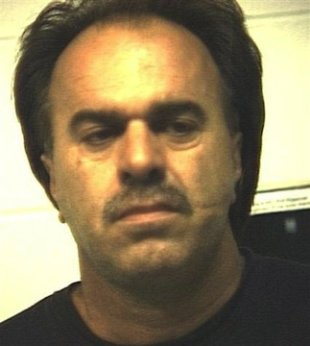 A government informant posing as a member of the feared Zetas drug cartel in Mexico helped foil an Iranian plot to kill the Saudi Arabian ambassador to the United States on American soil, the Justice Department says.
A government informant posing as a member of the feared Zetas drug cartel in Mexico helped foil an Iranian plot to kill the Saudi Arabian ambassador to the United States on American soil, the Justice Department says.The informant "posed as an associate of a sophisticated and violent international drug trafficking cartel" who was willing to assassinate the Saudi Arabian ambassador, according to the complaint. Government sources told ABC News that the cartel in question was the Zetas. The Zetas have been behind some of the worst violence in Mexico's grisly drug war, including mass beheadings,arson in a Monterrey casino that trapped and killed 52 people and the murder of a U.S. immigration agent.
The complaint says the informant was busted on a narcotrafficking charge in the past and then was flipped by the Drug Enforcement Agency as a source who has helped them make arrests in other drug cases.
Manssor Arbabsiar, a 56-year-old naturalized American citizen who also had an Iranian passport, is accused of approaching the source thinking he was a member of the drug cartel on the direction of the Iranian military.
He wired the source $100,000 to a U.S. bank account as a down payment for assassinating the Saudi Arabian ambassador, and said he would pay the rest of the $1.5 million fee later. The government says Arbabsiar said he didn't care if as many as 100 civilians were killed along with the ambassador in the explosion. He traveled to Mexico several times to meet with the informant.
Tim Padgett at Time Magazine argues that Arbabsiar, who used to live in Corpus Christi, Texas, would have had to be pretty stupid to think the Zetas would bomb an American target for only $1.5 million. "The Zetas, after all, are part of a Mexican drug-trafficking, kidnapping and extortion industry that rakes in as much as $40 billion a year," he writes. "To risk that kind of cash flow by carrying out a five-alarm international hit for a million and a half bucks seems a non-starter. It also seems an organization like the Iranian Revolutionary Guard, for whom the Justice Department says Arbabsiar may have been working, should know better. Arbabsiar, who lives near Mexico in Corpus Christi, Texas, certainly should have been wiser."
Middle East expert Juan Cole speculates on his blog that Arbabsiar's patron, allegedly a member of the Revolutionary Guards, may have had a side business in drug trafficking. Cole thinks the plot seemed so amateur that it makes it more sense that it was the work of an Iranian drug cartel angry over the Saudi war on drugs than Iranian government operatives. The Iranian cartel may have been hoping to find new markets for Iran's opium and heroin supply that typically go through Afghanistan.
Watch the ABC News report below.


